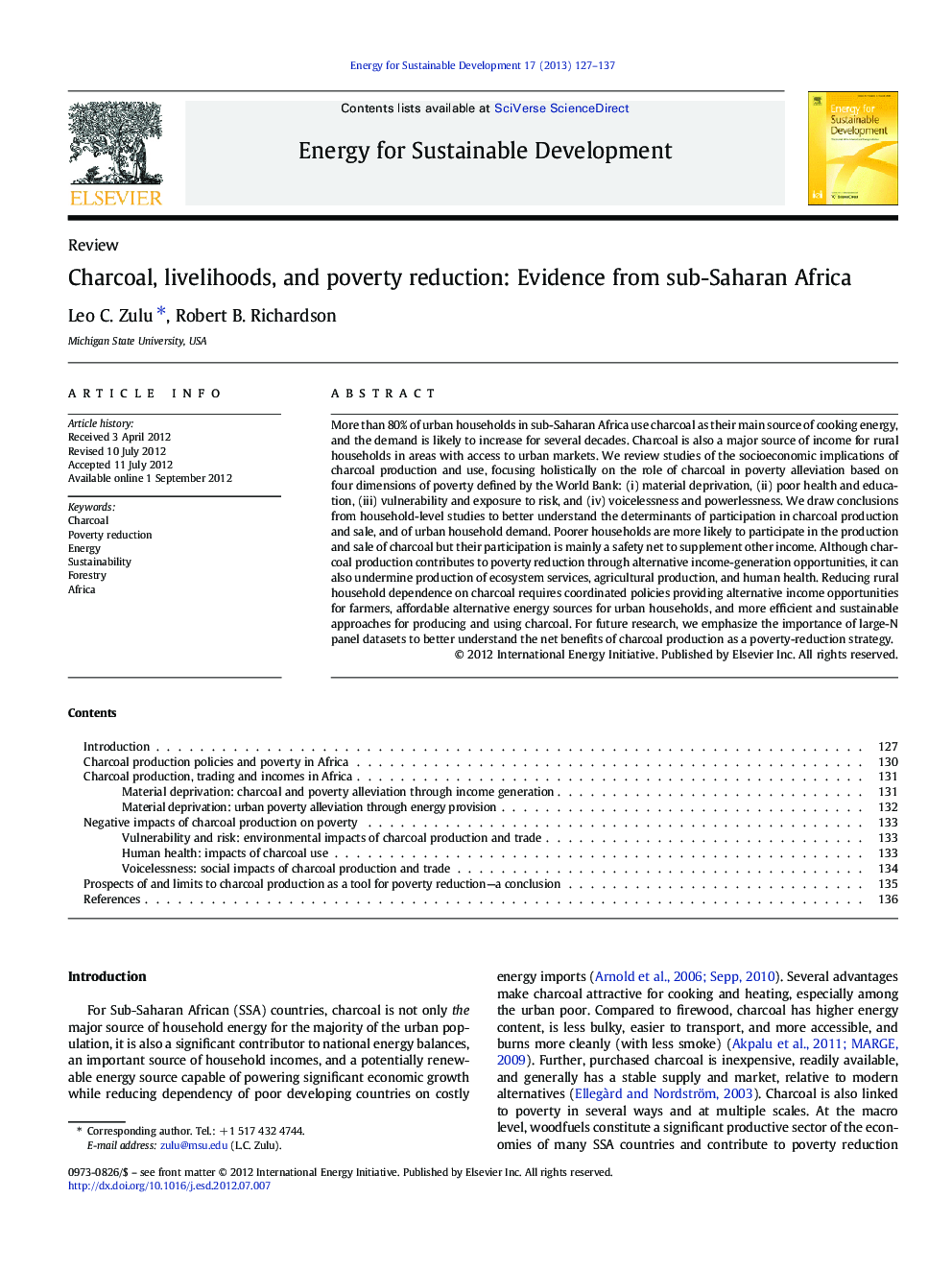| کد مقاله | کد نشریه | سال انتشار | مقاله انگلیسی | نسخه تمام متن |
|---|---|---|---|---|
| 1047035 | 945183 | 2013 | 11 صفحه PDF | دانلود رایگان |

More than 80% of urban households in sub-Saharan Africa use charcoal as their main source of cooking energy, and the demand is likely to increase for several decades. Charcoal is also a major source of income for rural households in areas with access to urban markets. We review studies of the socioeconomic implications of charcoal production and use, focusing holistically on the role of charcoal in poverty alleviation based on four dimensions of poverty defined by the World Bank: (i) material deprivation, (ii) poor health and education, (iii) vulnerability and exposure to risk, and (iv) voicelessness and powerlessness. We draw conclusions from household-level studies to better understand the determinants of participation in charcoal production and sale, and of urban household demand. Poorer households are more likely to participate in the production and sale of charcoal but their participation is mainly a safety net to supplement other income. Although charcoal production contributes to poverty reduction through alternative income-generation opportunities, it can also undermine production of ecosystem services, agricultural production, and human health. Reducing rural household dependence on charcoal requires coordinated policies providing alternative income opportunities for farmers, affordable alternative energy sources for urban households, and more efficient and sustainable approaches for producing and using charcoal. For future research, we emphasize the importance of large-N panel datasets to better understand the net benefits of charcoal production as a poverty-reduction strategy.
► We review charcoal impacts on poverty reduction in Africa on four dimensions.
► Charcoal is vital sector for energy, economy, poverty reduction; but is neglected.
► Benefits: vital rural-cash safety nets; urban income, affordable, reliable energy.
► Charcoal has negative environmental, health, social, livelihood, and power impacts.
► Needed: pluralistic policy, regulated sustained use, pro-poor, incentives, advocacy.
Journal: Energy for Sustainable Development - Volume 17, Issue 2, April 2013, Pages 127–137